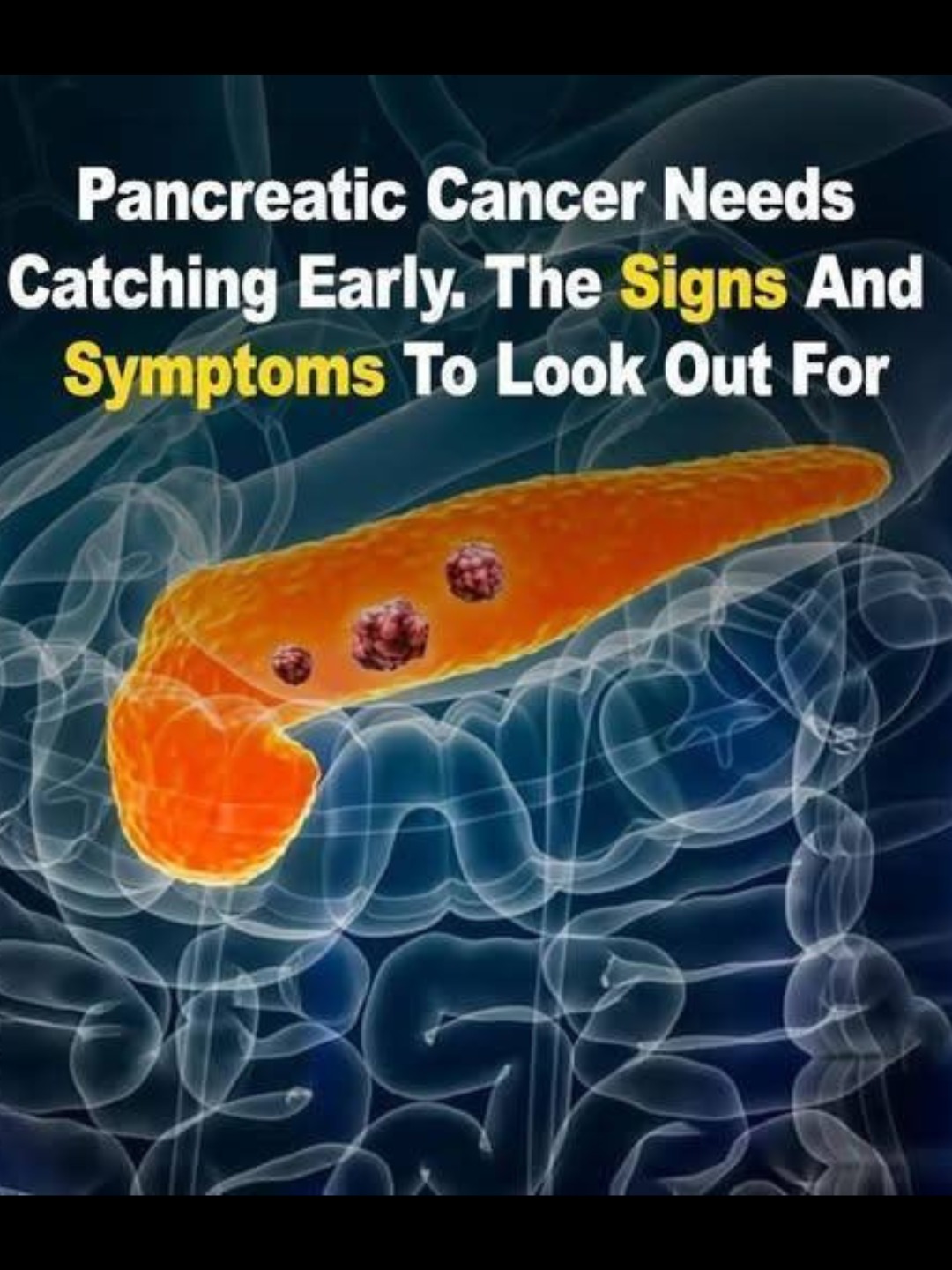🌡️ Why Pancreatic Cancer Is So Hard to Catch
The pancreas is deep inside the abdomen, so tumors aren’t visible or easily felt.
Early symptoms are vague and common—often mistaken for acid reflux, stress, or aging.
There is no routine screening test for people at average risk.
By the time symptoms become severe, the cancer may have spread.
That’s why awareness is everything.
Because when caught early, treatment options improve dramatically.
🔍 10 Warning Signs You Should Never Ignore
If you experience any of these symptoms persistently, especially in combination, talk to your doctor.
1. Jaundice (Yellowing Skin or Eyes)
One of the most telling signs.
Caused by a tumor blocking the bile duct.
Often appears without pain.
May come with dark urine and pale, greasy stools.
💡 Fun fact: Jaundice may show up in the eyes before the skin—check yourself in the mirror.
2. Unexplained Weight Loss
Losing 10+ pounds without trying?
This is common in pancreatic cancer due to poor digestion and appetite loss.
Your body can’t absorb nutrients properly.
3. Loss of Appetite & Feeling Full Quickly
Even small meals feel heavy.
Bloating or discomfort after eating.
Linked to disrupted digestive enzyme production.
4. Abdominal or Mid-Back Pain
Dull, persistent ache in the upper belly that radiates to the back.
Often worse when lying down or after eating.
Can be one of the earliest physical symptoms.
5. New-Onset Diabetes
Pancreatic cancer can damage insulin-producing cells.
If you develop diabetes suddenly—especially after age 50—ask your doctor to investigate further.
About 1% of adults over 50 with new diabetes may have undiagnosed pancreatic cancer.
6. Digestive Problems & Fatty Stools
Stools become pale, oily, foul-smelling, and float (steatorrhea).
This happens because the pancreas isn’t releasing enough enzymes to break down fat.
7. Nausea and Vomiting
A growing tumor may press on the stomach.
Causes delayed gastric emptying (gastroparesis), leading to nausea after meals.
8. Fatigue That Won’t Go Away
Not just tiredness from being busy.
Deep, unrelenting exhaustion—even after rest.
Often linked to malnutrition, anemia, or the cancer itself.
9. Blood Clots (Deep Vein Thrombosis)
Unexplained blood clots in legs or lungs (pulmonary embolism) can be an early sign.
Pancreatic cancer increases clotting risk—a phenomenon called Trousseau’s syndrome.
10. Itchy Skin (from Bile Buildup)
If bile flow is blocked, bilirubin builds up in the blood.
Leads to jaundice—and intense itching, especially at night.
Scratching won’t help; the cause is internal.
🚩 Who Is at Higher Risk?
While anyone can develop pancreatic cancer, certain factors increase risk:
Age: Most cases occur after 55
Smoking: Doubles the risk
Family history: Especially with BRCA mutations or Lynch syndrome
Chronic pancreatitis
Obesity and sedentary lifestyle
Long-standing diabetes
If you have multiple risk factors, stay vigilant—even more so if symptoms arise.
✅ What You Can Do Today
You don’t need to live in fear.
You just need awareness—and action.
✔️ Pay Attention to Patterns
One symptom alone may not mean cancer.
But two or more together—like weight loss + abdominal pain + jaundice—deserve medical attention.
✔️ Keep a Symptom Journal
Write down:
When symptoms started
How often they occur
What makes them better or worse
This helps doctors see the full picture.
✔️ Ask the Right Questions
If you’re concerned:
“Could this be related to my pancreas?”
“Should I get imaging (like a CT or MRI)?”
“Do I need to see a gastroenterologist?”
Trust your gut—if something feels off, push for answers.
❤️ Final Thought: Your Body Is Talking. Listen With Kindness.
Pancreatic cancer is tough.
But knowledge is power.
You don’t need to be a doctor to notice changes in your body.
You just need to care enough to pay attention.
And if you share this list with someone who’s been feeling “off” for weeks…
Or if you finally call the doctor because of that nagging back pain…
Know this:
You’re not overreacting.
You’re being brave.
Because sometimes, the bravest thing you can do is say:
“I’m not ignoring this anymore.”
